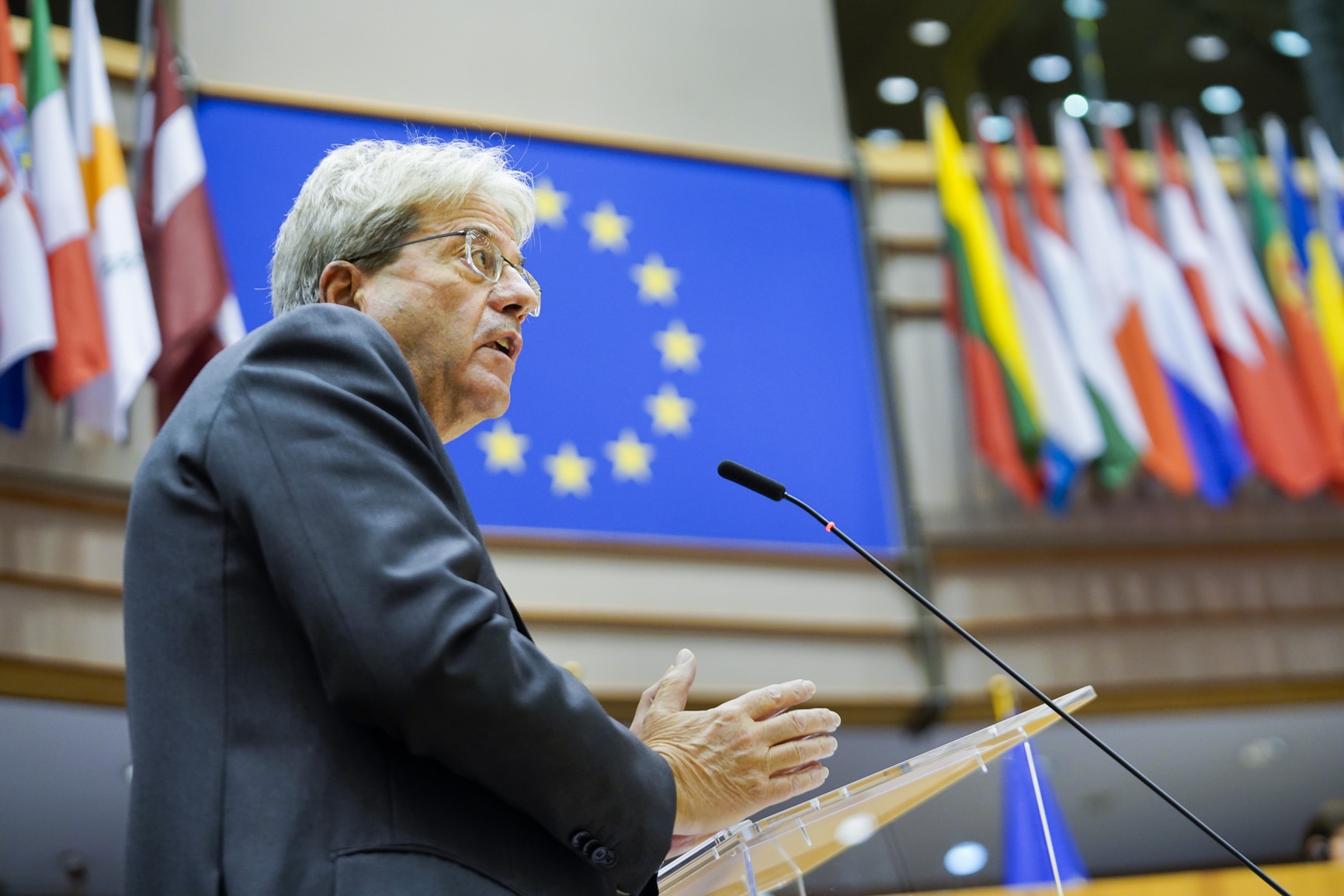Paolo Gentiloni, European Commissioner for the Economy and former Italian PM, issues thinly veiled warnings about Italy’s inability to deliver on its post-pandemic recovery plan. The expert economist Granfranco Polillo gives his readout
On Tuesday morning, an interview on the daily la Repubblica set the Italian political world alight. The interviewee was Paolo Gentiloni, European Commissioner for the Economy and former Italian PM, and the subject was mainly the EU’s ambitious recovery fund, dubbed Next Generation EU (NGEU), set to send €209 billion towards Rome.
Claudio Tito, a prominent journalist at Repubblica, summed up the matter in an op-ed that commented the inteview: “since today, it may be said that in Europe there is a ‘Italy case’. And this was not made known by an enemy of [Italy], but by [Mr] Gentiloni.”
While constant infighting consumes the Italian governing majority, word on the street is that the famously inefficient country will fail to deliver its recovery plan in time, endangering the European funding that should be rolling in every six months.
However, Mr Gentiloni noted, that’s not Brussels’ chief concern. Member countries are expected to deliver their plans by February, so as to access the first wave of European funding in the summer. Instead, Italy should be worrying about its capacity to absorb, and make use of, that money.
Bureaucratic inefficiency is a chronic problem that Italy seems unable to shake off. In this case, though, not being able to meet the rigorous objectives attached to the funds could mean that the following fund slice is withheld by Brussels – a security mechanism established to allow the European capital to oversee €1 trillion across 27 member states at the same time.
Therefore, Italy risks burning a “historic opportunity,” as Mr Gentiloni put it. The government’s draft recovery plan is broadly consistent with EU guidelines, he said, but he also made sure to voice two extremely telling concerns – which, by extension, are also Brussels’.
Firstly, the final plan must not be laden with incentives, because the NGEU plan requires policies that foster economic growth, namely investments and reforms. In short, no helicopter money, or the Commission will have to intervene.
Secondly, there must be some form of dedicated governance to ensure the effectiveness of the recovery effort. This is a direct jab to the government, who has been fighting relentlessly over who should oversee the European money, and who should oversee the overseers. Suffices to say that as of now, Parliament and the executive strongly disagree.
“It’s hard not to share [Mr] Gentiloni’s worries,” commented Gianfranco Polillo, a renowned economist, president of Enel’s stocking division and former undersecretary at the Ministry of Economy.
Brussels does not understand the infighting, he argued, because that very act is – sadly – the raison d’etre of Italian political parties today, in their constant bid to win over parts of the electorate.
But now is not the time to put up a spectacle. Mr Polillo explained that the latest CEBR report, which predicts the evolution of over 195 countries up to 2035, shows that Italy is set to suffer the worst economic failure of them all, with the only possible exception of Greece.
In the words of OECD’s secretary general Angel Gurria, “Italy must improve its long-term growth, to allow for a new rise in living standards and the sustainability of public debt.”
The NGEU could well be Italy’s antidote, like the Marshall Plan – and the ensuing plans – sparked Italy’s “economic miracle” post-WWII. But to achieve that, argues Mr Polillo, a country needs an idea to pursue, a sense of a shared objective, that which seems to be lacking from 2020 Italy. Hence Brussels’ worries.
Throughout the day, politicians across all political spectrums commented Mr Gentiloni’s interview. They all expressed agreement, although their responses also broke along predictable partisan lines: MPs underscored that Parliament should oversee the funds’ managing structure, opposition politicians denounced the inability of the current government to deliver, and governing politicians argued that this is no time to ignite a government crisis.
However, the timing of Mr Gentiloni’s interview was far from casual. Later in the day, the economic minister Roberto Galtieri tweeted a picture of himself in video link with the minister for European affairs Enzo Amendola as well as several other governing MPs. The group was kickstarting an intra-governmental dialogue on the NGEU.
All in all, it seems that the Italian political world has heeded Mr Gentiloni’s words. It remains to be seen whether they will be able to follow them, and lift Italy’s recovery efforts out of the swamping inefficiency.








